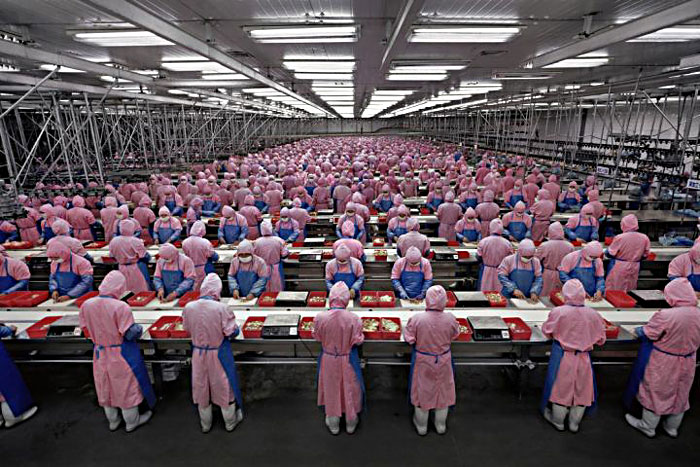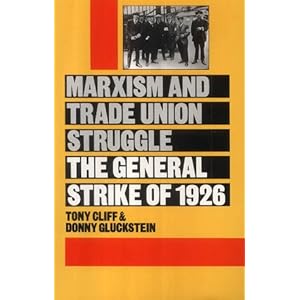The very nature of bourgeois government excludes the possibility of socialist class struggle. It’s not that we fear for socialists the dangers and the difficulties of ministerial activity; we must not back away from any danger or difficulty attached to the post in which the interests of the proletariat place us. But a ministry is not, in general, a field of action for a party of the struggle of the proletarian classes.
The character of a bourgeois government isn’t determined by the personal character of its members, but by its organic function in bourgeois society. The government of the modern state is essentially an organisation of class domination, the regular functioning of which is one of the conditions of existence of the class state. With the entry of a socialist into the government, and class domination continuing to exist, the bourgeois government doesn’t transform itself into a socialist government, but a socialist transforms himself into a bourgeois minister.
The social reforms that a minister who is a friend of the workers can realise have nothing, in themselves, of socialism; they are socialist only insofar as they are obtained through class struggle. But coming from a minister, social reforms can’t have the character of the proletarian class, but solely the character of the bourgeois class, for the minister, by the post he occupies, attaches himself to that class by all the functions of a bourgeois, militarist government.
While in parliament, or on the municipal council, we obtain useful reforms by combating the bourgeois government; while occupying a ministerial post we arrive at the same reforms by supporting the bourgeois state. The entry of a socialist into a bourgeois government is not, as is thought, a partial conquest of the bourgeois state by the socialists, but a partial conquest of the socialist party by the bourgeois state...
Within bourgeois society the role of social democracy [the socialist movement] as an opposition party is prescribed by its very essence. It can come forward as a ruling party only on the ruins of the bourgeois state
Rosa Luxemburg, 1899.
Although a left government cannot steer a path to socialism, revolutionaries are not indifferent as to whether such a government comes to power. Even though the bourgeoisie has only retreated from the front-line positions and still retains control of the economy and the state, immense possibilities can be opened up.
In both France and Italy, the entry into government of both communists and socialists for the first time since the late 1940s would lead to increased confidence and perhaps, militancy of the workers movement. To this extent the election of a left government provides the possibility of a major advance of the workers’ movement; if the masses take advantage of the temporary confusion of the bourgeoisie. But the advance is not inevitable, the government will be attempting to stabilise the situation, and the bourgeoisie will be regrouping. If the workers fall into the delusion that they have taken power, rather than crossed the first barrier, if, in other words, they rely on the government rather than their own activity, then their advance will be limited to reforms which can be clawed back by a resurgent bourgeoisie.
Hence the all-important paradox: the advent of a left government will only strengthen the workers’ movement inasmuch as the class, or at least its vanguard, do not have illusions in this government. The more independent and strong the workers’ movement is, the more reforms it will force from the government. The more it relies on its own forms of organisation, the more the way is open to a fundamental change in the balance of power between the workers and their allies and the bourgeoisie. But the more it is tied to the structures of state power, the greater is the possibility of bourgeois reaction.
This means that the role of revolutionaries is not to enter such a government ‘in order to accentuate the contradictions within it’, for to do this is to precisely tie the workers to the bourgeoisie.
Rather the job of revolutionaries is to break the illusions that the workers have in a ‘left’ government— and that means taking up all the partial limited struggles of workers, generalising them and leading them even if they conflict with the strategy of the government. In short, it is to organise a left opposition to the government, seeking to replace the reliance on the state with the self-organisation of workers.
Of course, tactically there are times when the revolutionary left defends the left government or perhaps particular measures; when it is open to attack from the right and the bourgeoisie trying to regain positions it has lost. But this should never obscure the fundamental positions that the revolutionary party has to adopt: the strategy of developing working class forms of power, which by definition will conflict with the bourgeois state power still in existence, in order to overthrow the government from the left and replace it with a workers state.
Otherwise, revolutionaries can find themselves in the same situation the Chilean left found itself in occasionally-appearing to defend unpopular governmental decisions against movements of the workers and petty bourgeoisie, so allowing the forces of the right to manipulate those movements.
Chris Harman and Tim Potter,
'The workers' government', SWP International Discussion Bulletin, No.4, 1977 - see also Paul Blackledge,
'Left Reformism, the state and the problem of socialist politics today', International Socialism, 139 (2013)Labels: class struggle, crisis, Europe, Greece, Marxism, socialism, the state











